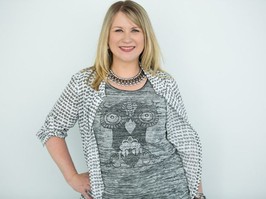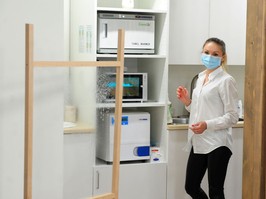breast cancer: size doesn't matter
women who are unhappy about their breast size tend to avoid self-examination

stock/ getty images
women who are conscious about their chest size are less likely to carry out regular examinations for breast cancer according to a new study.published in the body image journal, the study asked 384 women about their satisfaction with their breast size. researchers found that body-conscious women who do detect a change in their breasts are less likely to seek out a medical professional right away.according to the scotsman, three out of four women surveyed said they either wanted smaller breasts (31 per cent) or larger breasts (44 per cent), while a third revealed that they rarely or never checking for breast cancer.viren swami, a professor of social psychology at anglia ruskin university who led the study, told the scotsman that practitioners need to promote greater breast size satisfaction so that they can improve detecting cancer early.“for women who are dissatisfied with their breast size, having to inspect their breasts may be experienced as a threat to their body image and so they may engage in avoidance behaviours,” he said.“breast size dissatisfaction may also activate negative self-conscious emotions such as shame and embarrassment that results in avoiding self-breast examination.”while 55 per cent of women said they would see a medical professional immediately if they saw a change in their breasts, one in ten said they would delay seeing a doctor for as long as they could.swami said that shifting this dissatisfaction starts with raising breast awareness. breast education can help women view them as bodily functional rather than aesthetic. he added that it’s important for healthcare practitioners to be aware of the dissatisfaction some women have with their breasts and how it impacts self-examinations and outcomes.in the uk, over 500,000 women are diagnosed with breast cancer every year. it’s the most common form of disease in females, with about one in eight women developing the disease at some point in their lives.it’s recommended that women check their breasts regularly for any unusual changes. specifically, getting to know the look and feel of your breasts will help you to determine any changes as early as possible. the earlier any abnormal changes can be spotted and examined by a doctor, the greater the success of treatment.learn how to check your breasts here.
 2 minute read
2 minute read




